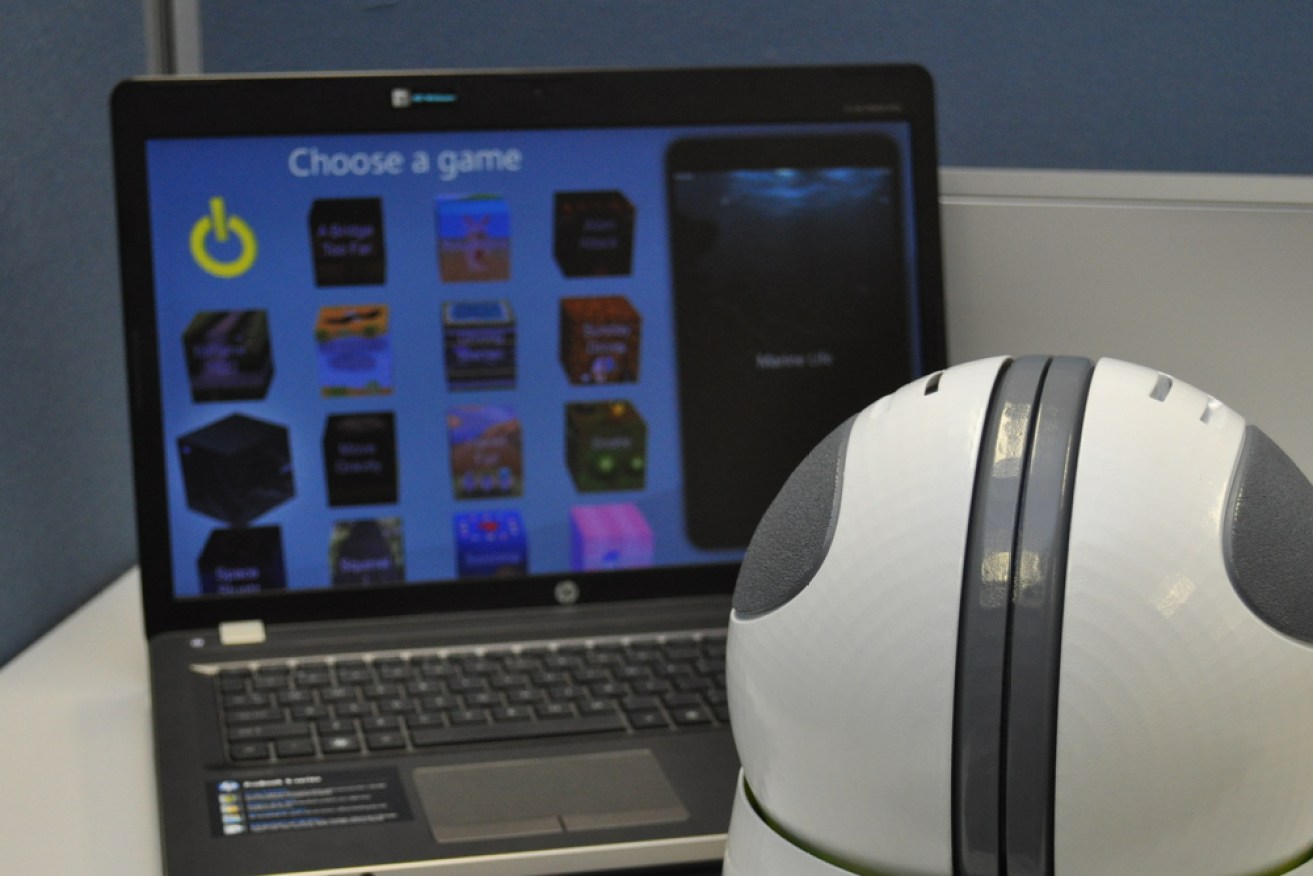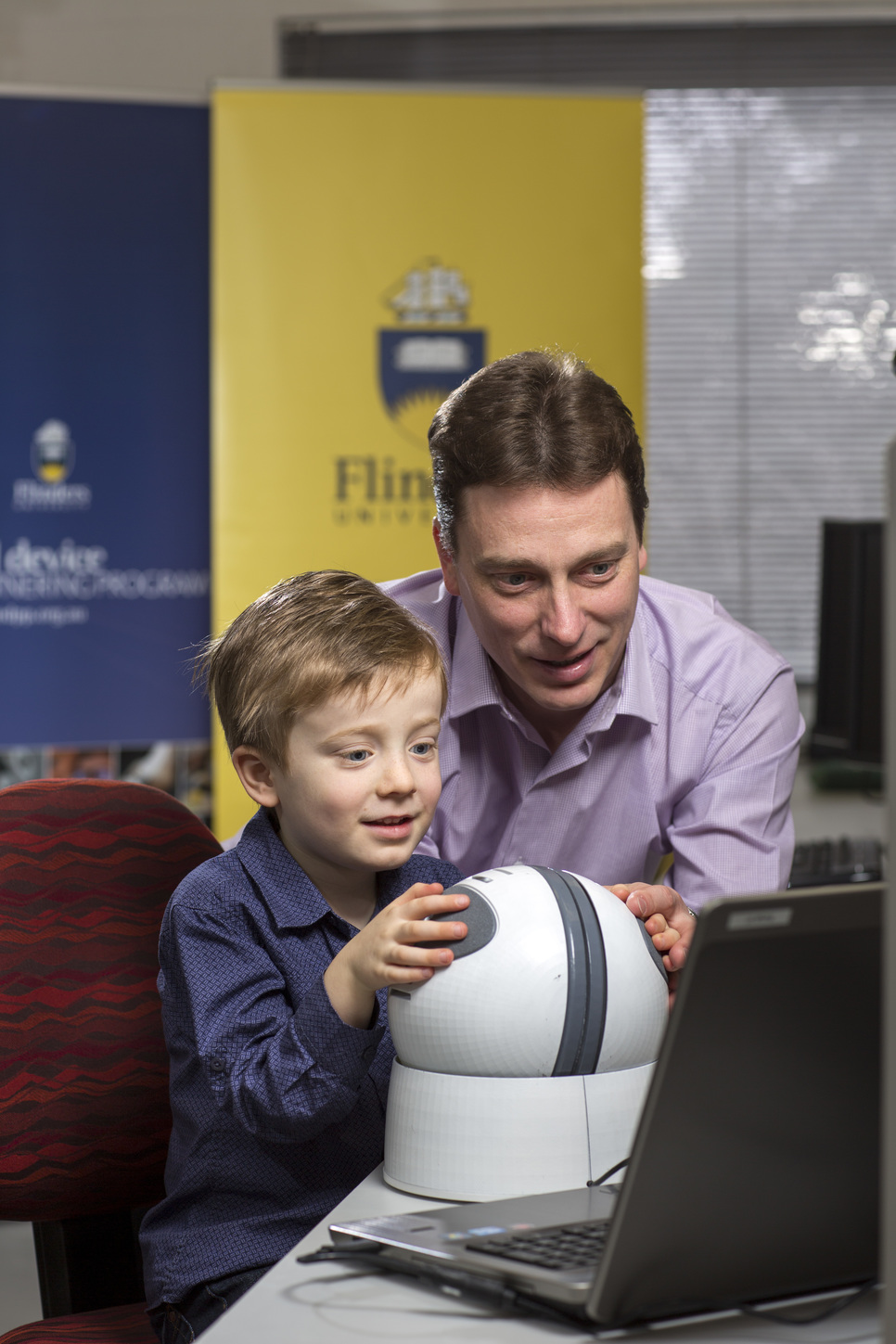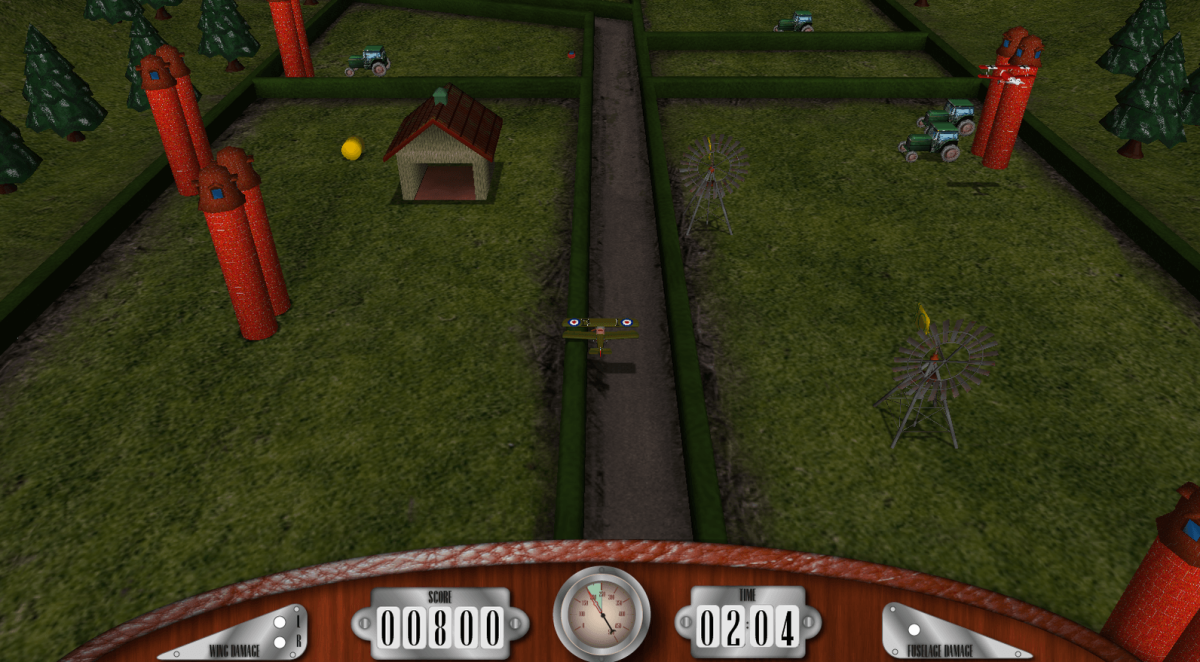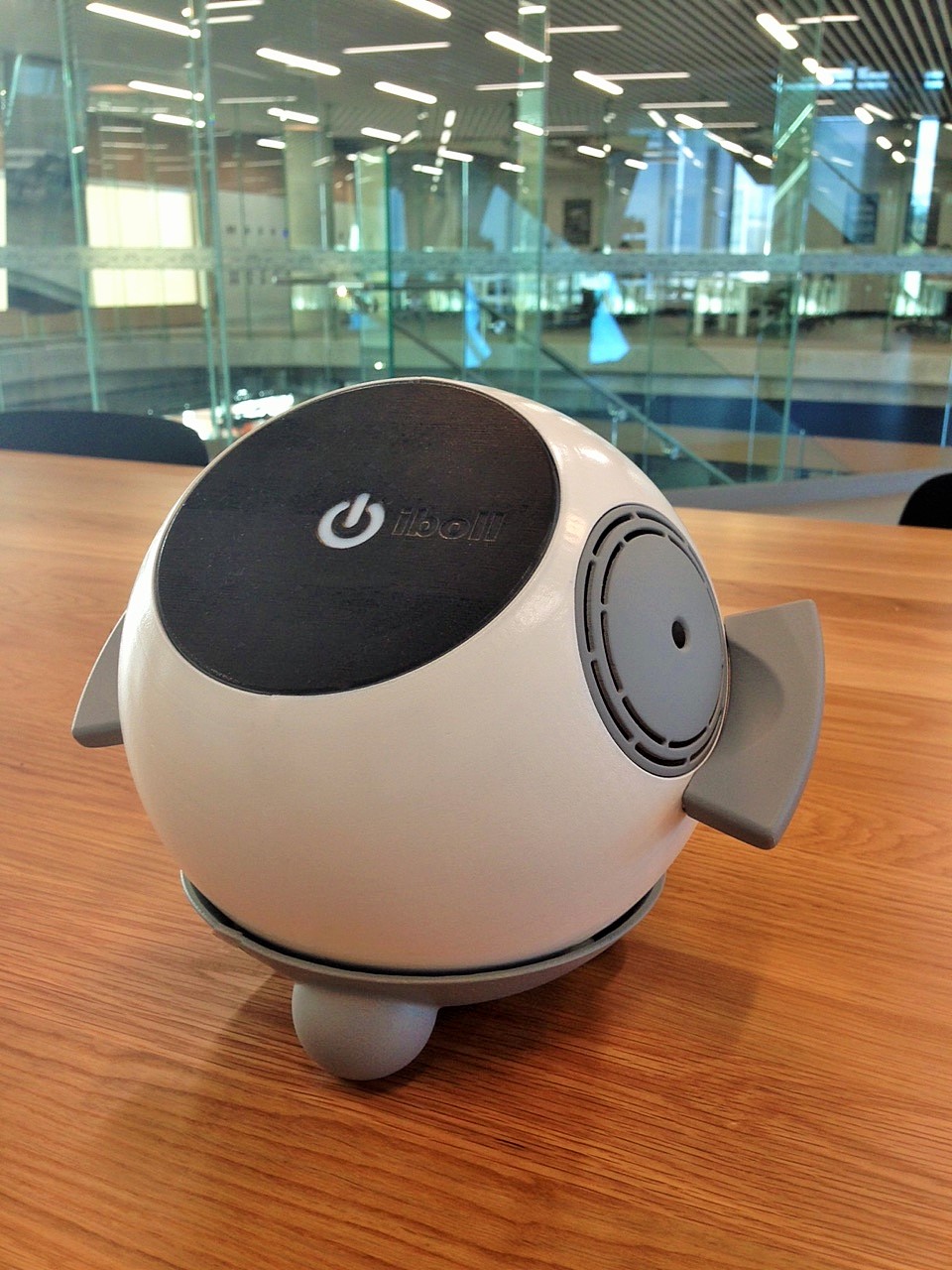Serious game therapy in world technology summit
The World Health Organisation has invited an Adelaide researcher to talk about his invention at a global forum in Geneva, Switzerland this week.

The OrbIT controller was custom designed to help children with cerebral palsy. David Hobbs, Author provided
David Hobbs, a rehabilitation engineering and lecturer at Flinders University, will speak at the Global Research, Innovation, and Education in Assistive Technology (GREAT) Summit about his research in this fast-emerging field of expertise.

The author and his son Thomas use the OrbIT controller. Photo courtesy of the South Australian Department of State Development
OrbIT, a control device developed by Mr Hobbs and other SA designers and researchers, is a novel user-centred computer gaming system for people with hand impairments, including children with cerebral palsy and stroke patients.
“Our system is accessible, improves hand function, increases children’s social participation, is scalable, and can be translated to other conditions,” Mr Hobbs says.
“People with hand impairments typically avoid using their non-dominant hand, leading to limb neglect,” says Mr Hobbs, a Fulbright Professional Scholar and Churchill Fellow.
OrbIT has won a string of endorsements including the Better Technology Award (prototype category, 2014) and the Australian Rehabilitation and Assistive Technology Association (ARATA) award for ‘developments, improvements and innovations in service delivery to Assistive Technology users’ (2012)
Assistive technology, which groups together assistive products spanning from eye glasses and wheelchairs to sophisticated automated systems, is a critical and cost-effective tool that can enable full participation in daily life for millions of people, according to the WHO forum organisers.
However, only 1 in 10 people in need have access to assistive products and no country in the world has a national policy exclusively focused on assistive technology.
More than 150 of the world’s top researchers, innovators and educators in the field will present at the inaugural GREAT Summit on 3-4 August.
The summit aims to build new research collaborations, accelerate innovative education and certification, and showcase ground-breaking developments in assistive technology.
The GREAT Summit is an initiative of the Global Cooperation on Assistive Technology (GATE), created by WHO in 2014 to spur progress towards a world where everyone in need has access to high quality, affordable assistive technology to lead healthy and productive lives.
Mr Hobbs says the SA-designed device addresses the WHO Global Priority Research Theme 3 of ‘high quality and affordable assistive technology’.
“Following positive trial results and significant end-user interest, we’re focusing our efforts on commercialising the latest innovative version of OrbIT, called i-boll,” Flinders distinguished alumni and PhD candidate Mr Hobbs says.
“i-boll has the same functionality as OrbIT but addresses issues relating to design in manufacture, the ability to interact with commercial games, cost and scalability.”
“Our multidisciplinary research team’s aim was to encourage active use of the neglected hand through fun and meaningful play, capitalising on the inherent desire and motivation people have to play computer games, particularly children and young adults.”
While stroke is the leading cause of disability worldwide, cerebral palsy (CP) is the most common childhood physical disability, affecting more than 34,000 Australians, and more than 17 million people worldwide.
Most children with CP require ongoing therapy and exercise to maintain or improve their function. Typical therapy programs target the legs, meaning the child can be independently mobile, and the hands and arms, so the child can be independent with activities of daily living, like dressing, feeding and manipulating objects.

One of the games on the OrbIT system. David Hobbs, Author provided
These exercises are necessary to improve muscle and limb coordination, control and range of motion. However, engaging children with CP in meaningful therapy can be difficult, despite the merits of the exercise and the potential therapeutic benefits. Like most exercises, they are seen as work.
Dr Hobbs’ research has focused on developing ‘serious games’ – games for which the primary purpose is not pure entertainment but to improve physical ability and health.
During a six-week trial in Adelaide the “OrbIT” gaming system, for children with limited hand function, proved very helpful.
“It improved social interaction amongst siblings, presumably because it was the first gaming system that provided an equal playing field.
“Due to the design, children with and without hand impairment could play OrbIT, and children with CP didn’t have to worry about poor performance caused by their limited hand function.

The latest prototype of the OrbIT technology – i-boll.
“As well, the children’s non-dominant hands performed better during tests of manual manipulation and hand function after the trial compared to before the trial started.
As technology improves and smart devices become ubiquitous, so will gaming, but not just because players want to get a high score. People will be gaming for their health, well-being and personal development.
The OrbiT project was a collaborative partnership between Flinders University, the University of South Australia, and the Women’s and Children’s Health Network in Adelaide. It was supported by funding from Flinders University, the Women’s and Children’s Hospital Foundation and the Channel 7 Children’s Research Foundation.
Other SA researchers who worked on the project include Professor Karen Reynolds, Associate Professor Susan Hillier, Associate Professor Ray Russo, Associate Professor Sandy Walker, Dr Brett Wilkinson, Brad Wesson, Max Hughes and Martin Henschke.





